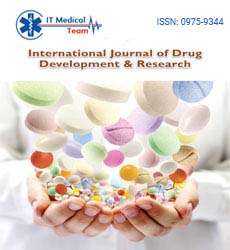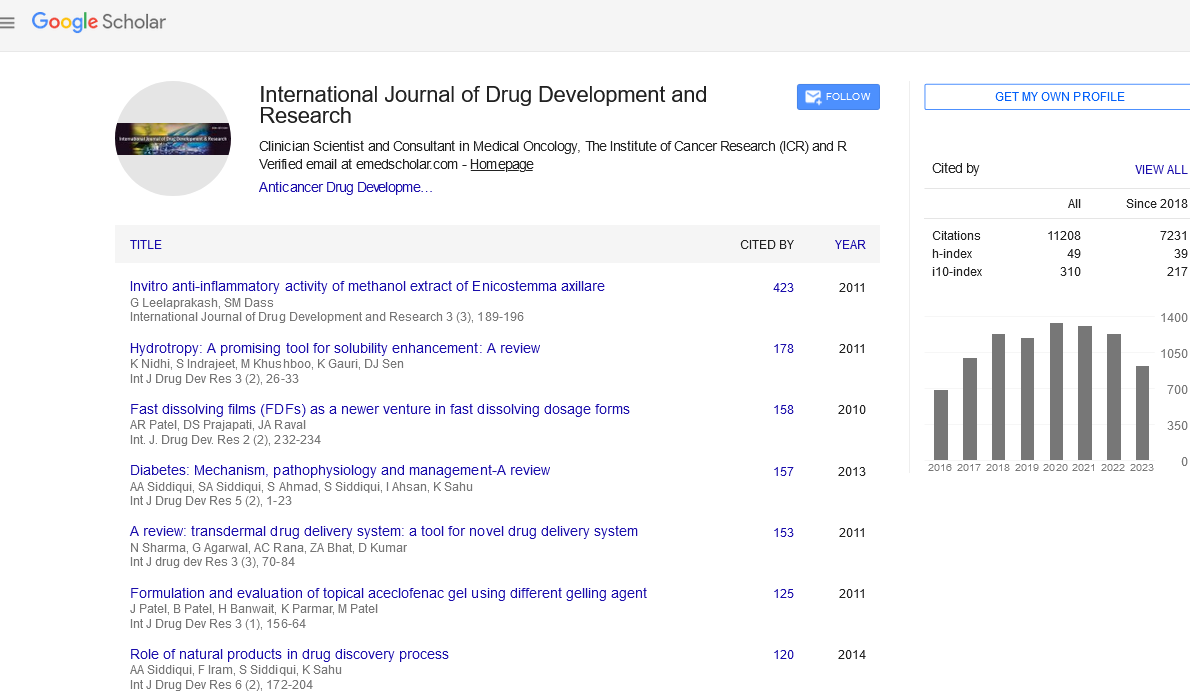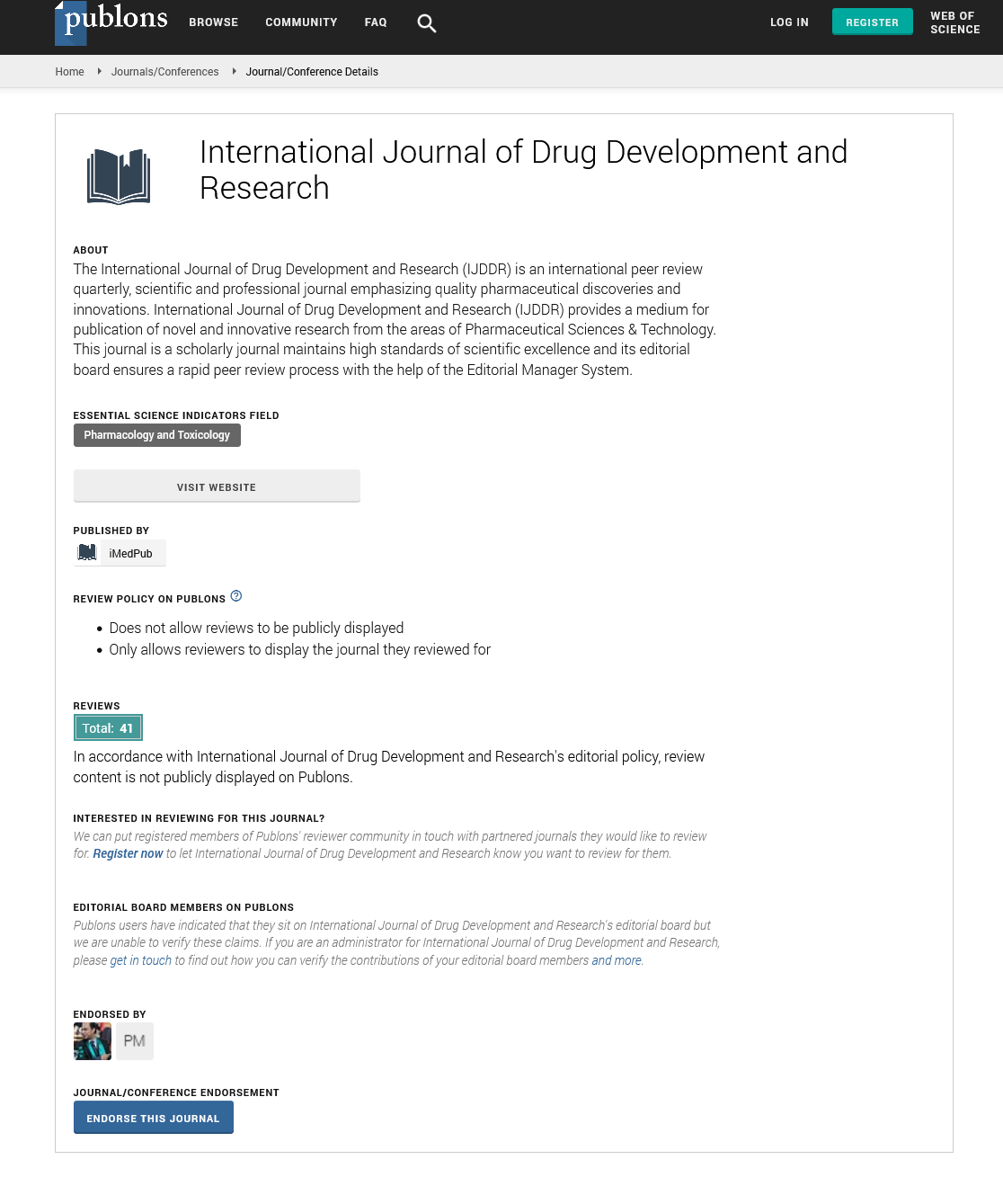David Cheruiyot*
Department of Pharmacology, University of Gothenburg, Gothenburg, Sweden
- *Corresponding Author:
- David Cheruiyot
Department of Pharmacology
University of Gothenburg
Gothenburg
Sweden
E-mail: davidcheruiyot@au.se
Received Date: March 04, 2021; Accepted Date: March 18, 2021; Published Date: March 25, 2021
Citation: Cheruiyot D (2021) Therapeutic Drug Interactions of COVID-19. Int J Drug Dev & Res Vol.13 No.2: e001
Copyright: © 2020 Cheruiyot D, et al. This is an open-access article distributed under the terms of the Creative Commons Attribution License, which permits unrestricted use, distribution, and reproduction in any medium, provided the original author and source are credited.
Description
The COVID-19 vaccines being distributed in the U.S. have been discovered to be both viable and safe for a many people. In any case, everybody's circumstance is unique. Individuals actually have doubt regarding what the antibody could mean for them.
Despite the fact that it is uncommon, a few antibodies utilized for different sicknesses can cooperate with different meds you take. Here and there antibodies can make prescriptions turn out distinctively for a brief timeframe. Also, taking certain meds can make antibodies less viable.
Now, we couldn't say whether the COVID-19 antibody can influence your drugs. Notwithstanding, what we do think about how it functions proposes that the possibility of a negative response between the immunization and any medicine is tiny. Taking medicine isn't motivation to defer getting the COVID-19 immunization.
Antibodies work by making a safe reaction in our bodies. This resistant reaction accomplishes something other than make antibodies against an illness: It primes our bodies to battle a disease. Once in a while, these progressions can influence how the cells in our bodies utilize the prescriptions we take.
Results may move with the sort of COVID-19 vaccination. We understand the most about outcomes following vaccination with the Pfizer and Moderna messenger RNA – or mRNA – inoculations.
The most well-known result is irritation at the site of infusion. Opposite results incorporate exhaustion, migraine, muscle hurts, chills, joint torment, and perhaps some fever.
For instance, a portion of the prescriptions we take for different infections are initiated by a protein called cytochrome p450. Cytochrome p450 is a working atom made by our bodies. It turns a few meds on. It turns different prescriptions off. We depend on cytochrome p450 to work at a specific speed to get a consistent reaction from our prescriptions.
Solid irritation, including the aggravation brought about by serious COVID-19, requires this chemical to be postponed. We don't have a clue yet in the event that the resistant reaction brought about by the immunization could similarly affect cytochrome p450.
Fortunately more often than not, a little change in how rapidly a drug is initiated will not have any significant impact on your wellbeing. Also, the underlying irritation brought about by the COVID-19 immunization just keeps going a couple of days. When it goes down, your safe framework will recall COVID-19, however the remainder of your body will get back to business as usual.
The impact of prescriptions on immunizations has been concentrated an extraordinary arrangement in kids. Specifically, specialists have investigated whether giving a youngster a feverdiminishing medication, similar to acetaminophen (Tylenol), just before they get their customary shots will make these shots less powerful. For this specific circumstance, scientists tracked down that the children who'd made acetaminophen before their effort had a lower resistant response estimated in their blood work than the children who hadn't. In any case, the immunizations actually functioned admirably enough to ensure them in reality.
The interaction to create COVID-19 immunizations is optimized while keeping up the best expectations: Given the dire need to stop the pandemic, stops between steps, frequently expected to get financing, have been abbreviated, or disposed of, and sometimes, steps are being done in corresponding to speed up the cycle, any place that is protected to do.
There are numerous exacting assurances set up to help guarantee that COVID-19 immunizations are protected. Like all immunizations, COVID-19 antibodies are going through a thorough, multi-stage testing measure, including enormous (stage III) preliminaries that include a huge number of individuals. These preliminaries, which incorporate a few gatherings at high danger for COVID-19 (certain gatherings like pregnant and lactating ladies were excluded from immunization preliminaries), are explicitly intended to distinguish any normal results or other security concerns.
36268






